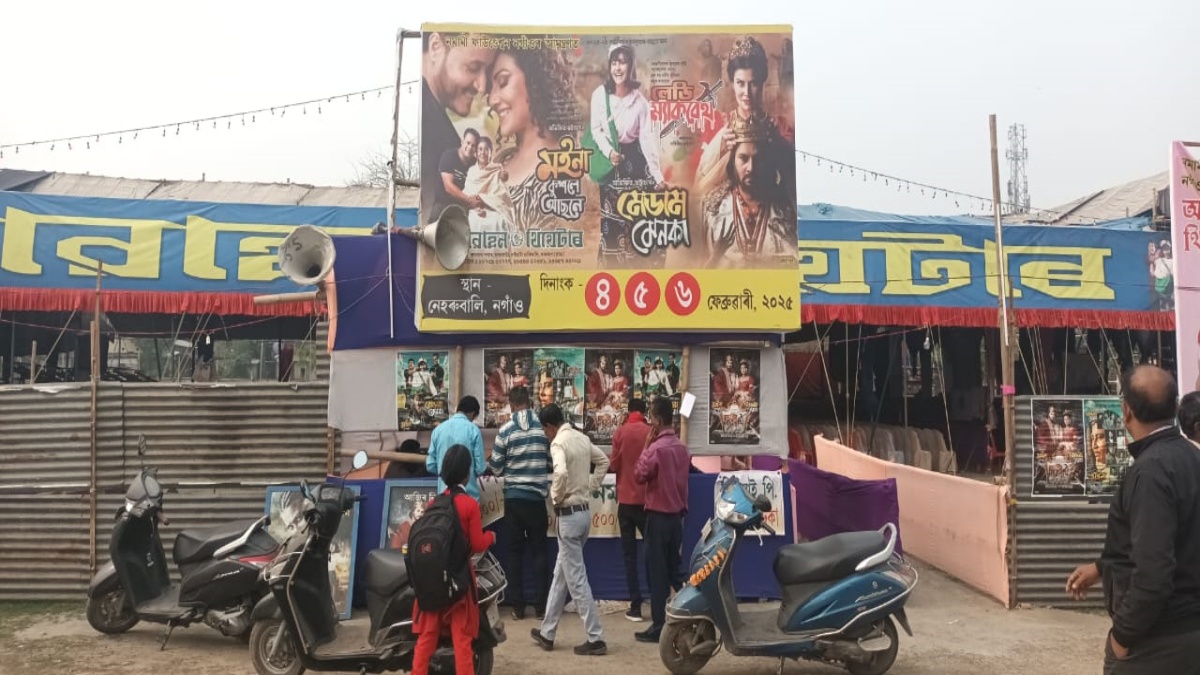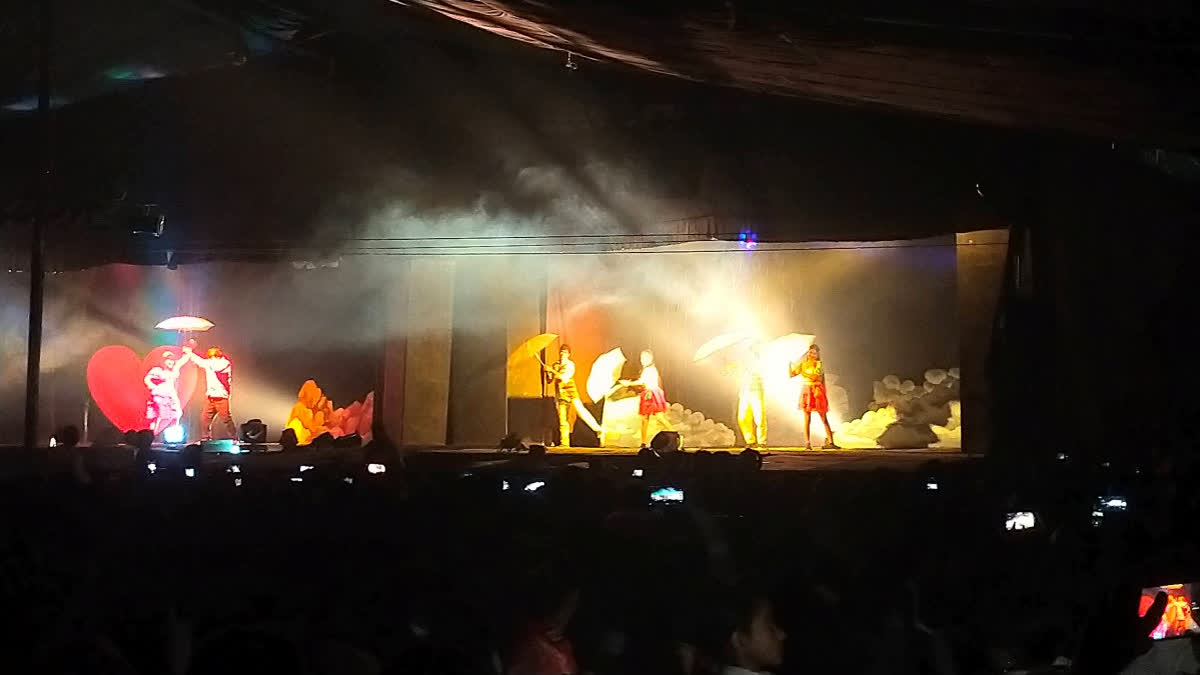By Rakibul Waheed
Nagaon: It has been over 62 years that the mobile theatre, locally known as Bhramyomaan Theatre, as a form of entertainment has been ruling the hearts of the people in Assam despite onslaught of the digital platforms. This at a time when even cinema projections at the Inoxes, PVRs and halls have failed to draw the audience as earlier. But theatre performances in this part of the world are often 'sold out' shows till date.
Call it the unique appeal, blending tradition with innovation, live performance with emotional depth and strong community connections, these mobile theatres have brought their own stories to life in the villages and towns alike.
Even now thousands of people are involved in the making of the theatre – from directors, actors to technicians, who believe, nothing can replace the form of entertainment. “The theatre is the place where people relate to their own concerns, issues and reflection of their life. And this is the binding factor,” says veteran actor Jatin Bora, who has had a successful career in both theatre and cinema. Expressing his deep attachment to this art form, he says it is not just a profession—it’s a passion and a way of life.

Actors Take Immense Pride in Mobile Theatre
"I feel proud to be an actor in mobile theatre," says Bora. "When I was with the Kohinoor Mobile Theatre Group, we were invited to perform at the National School of Drama (NSD) in New Delhi. That experience—performing in front of legends like Shashi Kapoor and Naseeruddin Shah—was unforgettable."
But Bora also speaks of the challenges mobile theatres face. "In cinema, it takes years to make a movie with takes and retakes, but in theatre, it’s all live and in one go. The energy, the connection with the audience, and the emotions are raw and real," he explains. "I remember when my father passed away, I had to go on stage that very night. The show must go on—that’s the spirit of mobile theatre."
A Thriving Industry
Assam’s mobile theatre dates back to 1963 when a group of passionate individuals in Pathsala (now in Bajali district) envisioned a way to bring live theatre to rural audiences. Since then, it has become an integral part of Assamese culture and also provides employment opportunities to tens of thousands of people. There were over 100 mobile theatre groups in Assam till 2011, each with its own set of actors, directors, and crew members. Although the number of theatre groups have been reduced to approximately 50 in Assam now, the industry is thriving and kicking.

A Deep Emotional Bond with Communities
One of the most remarkable aspects of Assam’s mobile theatre is its ability to bring people together. Unlike movies, where audiences passively watch on a screen, mobile theatre is an immersive experience.
Prominent Assamese actor Prashtuti Parashar, who also owns the Abahan Mobile Theatre Group, says, "Whenever a mobile theatre troupe arrives in a town, the actors and crew become part of the local community. They live there, interact with the people, and share their lives. There is a personal, emotional touch that makes mobile theatre special."
“In a year, a theatre group performs about 240 shows. There are usually three dramas every year. It is a different experience," says Bora, who has been performing for Itihas mobile theatre group in Assam. Bora who has worked with different theatre groups in the past has returned to mobile theatre after a gap of six years.
A Rich Legacy Rooted in Assamese Culture
Mobile theatre evolved from the Jatra tradition, which was introduced to Assam by Bengali settlers during British rule. Over time, Assamese pioneers like Achyut Lahkar and Sadananda Lahkar developed their own version of Jatra, creating what is now known as Bhramyomaan Theatre.
Researcher and author Kishore Kalita, who has written extensively on this subject, explains how this transition happened. "To replace the cultural dominance of Bengali Yatra groups, Assamese artists formed their own opera and theatre companies. Nataraj Theatre, founded by Achyut Lahkar in 1963, became a game-changer," says Kalita. "It introduced modern lighting, elaborate sets, and sound effects, drawing large audiences and setting the stage for future innovation."
Kalita’s research documents the rise of over 109 mobile theatre groups in Assam by 2011. While some have faded over time, others continue to thrive, adapting to new trends while maintaining their traditional essence.
Technology and Innovation Keep Mobile Theatre Alive
Assam’s mobile theatre is nothing less in implementing modern technology in its shows and over the years, staged adaptations of Hollywood blockbusters like Titanic and Jurassic Park, complete with impressive sound, lighting, and special effects.
"In many remote villages, there are no cinema halls," says Kalita. "But mobile theatre brings these stories to life on stage, allowing audiences to experience large-scale productions right in their hometowns."
With advanced technology, the audience get to see what they usually see in cinema halls – be it lighting, digital projections, and immersive storytelling techniques.
The Future of Mobile Theatre in Assam
Assam’s mobile theatre continues to remain mostly because of the community’s involvement and if this continues, the Bhramyomaan theatre will never fade into oblivion. As theatre lovers say, as long as there are stories to be told and audiences eager to listen, the mobile theatres are here to stay.
Read More



